#ivf hospital
Explore tagged Tumblr posts
Text

youtube
#tiktok#fuck trump#trump's america#president trump#trump administration#donald trump#trump's second term#trump's executive orders 2025#ivf treatment#ivf specialist#ivf hospital#ivf#fuck maga#maga morons#maga cult#maga movement#maga is a cult#maga is weird#maga idiots#maga is stupid#maga insanity#Youtube
27 notes
·
View notes
Text

Experienced Gynecologist In Wakad for Women’s Wellness
Orion Hospital is home to the most skilled and compassionate gynecologist in Wakad, offering expert care for women of all ages. From routine gynecological check-ups to specialized treatments, our doctors provide comprehensive healthcare solutions tailored to your needs.
Best Gynecologist In Wakad for Advanced Treatments
When searching for the best gynecologist in Wakad, look no further than Orion Hospital. Our specialists have years of experience in managing various gynecological conditions, including PCOS, endometriosis, menstrual disorders, and reproductive health concerns, ensuring the best outcomes for our patients.
Best Gynecologist In Wakad for Pregnancy & Maternity Care
Orion Hospital is known for having the best gynecologist in Wakad for pregnancy, offering expert prenatal care, high-risk pregnancy management, and postnatal support. We ensure that every expecting mother receives personalized care to make her pregnancy journey safe and comfortable.
Best Gynecologist In Pregnancy In Wakad for High-Risk Cases
For those dealing with high-risk pregnancies, our specialists are recognized as the best gynecologist in pregnancy in Wakad. With a focus on advanced maternal care, we provide continuous monitoring, fetal screenings, and customized treatment plans to ensure a healthy pregnancy.
Best Gynecology Hospital In Wakad for Complete Women’s Care
As the best gynecology hospital in Wakad, Orion Hospital offers world-class facilities for gynecological treatments, fertility services, and maternity care. Our state-of-the-art infrastructure, advanced medical technology, and highly experienced doctors make us the preferred choice for women's healthcare in Wakad.
2 notes
·
View notes
Text
What is PCOS? | What is PCOD?
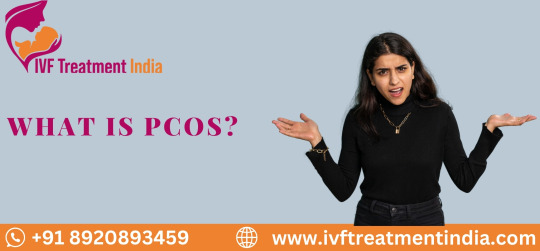
PCOD and PCOS: Causes
PCOD and PCOS causes are unidentified. It is a condition that impacts a female's ovaries. PCOS women produce a high amount of androgen hormones compared to PCOD women.
Let's understand separately.
What is PCOS?
Polycystic Ovary Syndrome (PCOS) is a hormonal imbalance that affects the reproductive age. In addition, high amounts of hormones like androgen and testosterone can lead to irregular periods. It is also one of the causes that disturb ovulation of eggs. As a result, difficulty in ovulation can lead to infertility in the future. Some of the symptoms of PCOS are abnormal hair growth, acne, and cyst in the ovaries. Furthermore, some of the diseases that stay for a longer time are heart disease and type 2 diabetes. The exact cause of PCOS is still unidentified, but these symptoms can be cured with several lifestyle changes, medication, and surgical treatment.
Sometimes, PCOS and PCOD can not be identified at the initial stage, so here are some of the common symptoms that impact ovulation and can be the reason for infertility.
Abnormal periods
Skipped menstrual period.
Abnormal increment in male hormones like androgen and testosterone.
Cyst developed in the ovaries.
What is PCOD?
Polycystic Ovary Disease (PCOD) is a condition where ovaries develop immature or slightly mature eggs. Sometimes, these eggs are unable to ovulate and become cysts over time. However, PCOD does not impact fertility. PCOD can be treated with some lifestyle changes or medications. It is believed that PCOD can take place due to poor lifestyle, hormonal imbalance, obesity, or stress. Fortunately, PCOD is not a condition that creates serious complications. Women with this condition can experience symptoms ranging from light to extreme. Nevertheless, these symptoms can be treated.
Some of the researchers have introduced it as an environmental and genetic cause. For example, some of the common causes include:
Poor nutrition or unhealthy diet
Inactive physical health
Pollution
Excessive intake of medicine and supplements
Hormone disrupting medicine
After reading a brief introduction about PCOD and PCOS. Now, come to analyze the cause of PCOS and PCOD.
Causes of PCOS and PCOD
The actual cause of PCOS/PCOD is unclear till now. Here are factors that will help to understand the related causes of PCOS/PCOD:
Can a woman pregnant with PCOD
Yes, having PCOD does not affect fertility, and women can get pregnant with this condition. However, it just needs some attention to maintain a healthy life routine, and some medication can help to treat PCOD.
Suggested treatment to cure PCOS/PCOD
PCOS and PCOD treatment treat the condition of abnormal periods, hirsutism, acne, pimples, infertility and obesity. In addition, the doctors plan the treatment according to the needs of the body and medical condition. The treatment plan starts with changes in lifestyle, diet plan and some hormone balancing medication. Specifically, lifestyle changes focus on issues like weight loss, exercise and a healthy diet. Moreover, balanced and protein diets help to maintain the body weight that leads to functioning the menstrual cycle properly.
Some of the common and effective treatment include:
Treatment for infertility with medication and injections.
Activation of ovulation with oral medicine and injections help the quality and quantity of eggs.
Reducing extreme forms of hair growth.
Improve the cycles of periods with medication. It also treats the imbalance of hormone and Insulin resistance.
Treatment for pimples and acne.
IVF treatment with PCOS/PCOD
Couples are facing infertility worldwide. Sometimes, the cause of infertility is clear, but sometimes it remains unidentified. If the couple is unable to conceive naturally and the female partner may have conditions like PCOS and PCOD, then conceiving a child through IVF is the only way. In fact, IVF treatment in India is one of the most cost-effective treatments compared to Western countries. Moreover, connecting with a medical health advisor will make the journey easier. If you are planning to get IVF treatment, IVF treatment in India is one of the best platforms to connect. The team of IVF treatment India will plan your complete journey hassle-free, according to your time and need. Ultimately, the best fertility clinics for IVF and the best IVF specialists are two of the main key factors of the IVF treatment India team.
#healthcare#pregnancy#ivfsuccess#ivf#ivf treatment#ivf specialist#ivf hospital#infertility#fertility
2 notes
·
View notes
Text
Ectopic And Normal Pregnancies
As a gynaecologist, one of the most common questions I hear from my patients regarding pregnancy is “what is an ectopic pregnancy?”
An ectopic pregnancy occurs when a fertilized egg implants itself outside of the uterus and cannot develop normally.
It’s a serious medical condition for both mother and baby; however, it can be treated if caught early.
Ectopic And Normal Pregnancies
Does Blocked Fallopian Tubes Affect Periods
Why do blastocyst not implant
Role of Lonopin Injection in IVF
Semen Analysis and Culture
2 notes
·
View notes
Text
fun fact IVF is also called the test tube baby procedure
#ivf treatment#ivf#ivf specialist#ivfsuccess#ivf hospital#fertility#funny#idk man#friendship#science#silly#lol#school#student#education system#high school#university#college#dumbass#babies#aww#precious#too cute#awwwww#adorable#funny shit#mewing#funny memes#funny post#funny stuff
3 notes
·
View notes
Text

TESA AND PESA TEST
#TESATEST#PESATEST#femelife#ivf hospital#best ivf center#fertility#ivf treatment#maleinfertility#infertility
2 notes
·
View notes
Text
#health & fitness#parenting#ivf treatment#ivf cost in india#ivfsuccess#ivf specialist#baby grow fertility#ivf hospital
3 notes
·
View notes
Text
Listen up, anyone considering egg freezing!
As of right now I am curled up with a cup of tea and a heat pack, recovering from surgery. So I thought I’d give you an overview of my experience as a trans man getting my eggs frozen to preserve my fertility before going on testosterone.
Why did I do it?
We never know what the future holds. While I doubt I will detransition, ever want to be pregnant or become infertile, there is a possibility of all three of these things happening. Preserving my eggs means I can still have children, no matter what happens.
I have a beautiful partner who preserved her sperm before starting estrogen three years ago. She only did it at the request of her mother, thinking that being seen as ‘fathering’ her children and watching her partner go through pregnancy instead of her would be too heartbreaking and distressing for her to cope with. She thought she would just adopt. After a couple of years of hormone therapy, she became more comfortable in her body, and is now desiring to have children with a partner - specifically me.
After meeting my girlfriend, I realised it wasn’t that I didn’t want kids; it was that I didn’t want kids alone, and I couldn’t imagine anyone ever loving me enough or loving someone else enough to have children with them. That all changed when I met her. I want to have children with her.
When it comes to adoption, only 1 in every 30 couples looking to adopt gets to adopt a child. This number is even lower for queer couples in my country. It is also now illegal to adopt from many places overseas due to corruption in the adoption industry.
I considered fostering, but after learning about the high rates of Aboriginal children taken from their families and placed in the care of white people, disconnected from culture, country and their people, I was horrified. 2% of the Australian population is Aboriginal or Torres Strait Islander, yet over 40% of kids in foster care are Aboriginal. We are not past the Stolen Generations. Every year we apologise for something we are still actively doing to these kids and their families. I will play no role in that.
There is a part of me that wants biological children. It is present in many people and isn’t something to be ashamed of. Adopted children are absolutely their adoptive parents’ children. But I suppose there’s a part of me that wants my kids to inherit some of the things I love about my partner. I know this sounds selfish, but that is what love does to you sometimes.
Even if I did decide to go down the road to adoption, I don’t believe I am qualified to raise a child with severe trauma. All children who are taken from their families, even for the right reasons, are traumatised. Every child who feels abandoned is traumatised. I am disabled as it is and need help myself. Taking on the responsibility of raising a child who needs specialised support is something I would prefer to avoid if I can. Obviously all pregnancy comes with the chance that your child will have extra needs or accomodations, but I want to give myself the best shot at being a good parent that I can. This means waiting until I am absolutely stable and in a position to raise a child, and giving my child the best shot at being healthy.
What made me consider not doing it?
The dysphoria that the process would bring made me reconsider. I knew I would have to have a period first, then go through a series of hormone shots that simulated early pregnancy. I knew my breasts would get sore and that this may prevent me from binding. I knew that I would become bloated and almost look pregnant. I knew I would have extra estrogen, a hormone I did not want a lot of, running through my body.
The general side effects, disregarding gender dysphoria, were not going to be fun either. Bloating, nausea, soreness, mood swings, increased emotional sensitivity etc are not fun to deal with for anyone.
The likelihood of even finding a surrogate was low. Paid surrogacy is not legal in Australia, so it would have to be what is called ‘altruistic surrogacy’, or someone who chooses to carry the baby without being paid (though their hospital bills are covered by the parents). My best shot at a surrogate at the moment is my own mother, but she is turning sixty this month. Many people I know or who are in my family would be at risk of suffering complications from pregnancy and I absolutely do not want any harm to come to the person who chooses to do this for us.
The scans were an inevitable but horrible reality. These scans, as it turns out, can be done trans abdominally if you push enough and go through doctors until you find someone willing. I did not know this. All my scans were trans vaginal. These scans feel invasive and can be painful, especially if you haven’t experienced penetration before.
A timeline of my experience (with the occasional picture):
Day 1: stopping Slinda.
The first day of my treatment I stopped taking my birth control pill. This had been stopping my periods for over a year.
Day 2-30
I felt horrible. It was like my system was being flooded with poison. I cried. I wanted to kill myself. My dysphoria was terrible. Around day 30 my period finally came, but it was weak and there was never a day of full bleeding. So we started toward the end of my very short cycle.
Day 1 of hormone shots:
I went to the pharmacy with my partner and a kind lady explained everything we needed to know about the injections I was going to take. We were given three types of medication: overleap, orgalutran and a trigger shot. The overleap stimulated the follicles, causing them to swell. The orgalutran prevented the eggs from being released. The trigger shot was to release the eggs. I took my first dose of overleap that evening, then again at 10am the next morning. I took overleap at 10am each morning for around 30 days. I started on a dose of 75mls, as I was young, healthy and fertile, and they didn’t want to risk OHSS (ovarian hyper stimulation syndrome).
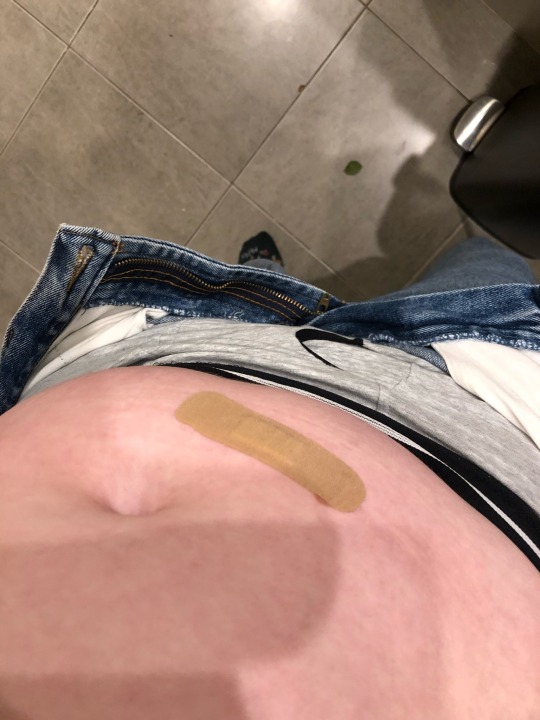
Day 7:
By now I was feeling pretty awful. The stabs weren’t too bad, but they stung occasionally. My partner injected them for me. I had started the orgalutran by this point. I had my first scan, which I had to travel an hour and a half for. The doctor doing the scan was male and not particularly sensitive to my situation. I shut down and cried afterwards and wouldn’t have sex for a week following due to severe genital dysphoria.
Day 14:
I had my second scan. This time it was with another male doctor who was much more gentle and kinder than the first one. I felt far more comfortable with him. The eggs still weren’t big enough.
Day 18:
I had my third scan, which was with the same nice man as before. I got the bad news via a phone call: my eggs weren’t responding to the medication, and they thought I should call off the shots and start again next cycle. There was no way in hell I was doing that, so I asked for another option. They said they could increase the dose of Overleap to 150mls. I thought about it for a while, and spoke with my mum, dad and partner for their opinions. In the end, I decided to double the dose and push on. They said in that case I would need to come down to be scanned by my main doctor, who worked in a city four hours from my home town.
Day 21:
we drove four hours to the city. By this time I was extremely bloated. We managed to do some nice things, like go out for dinner with my parents and try out a bagel place. I bought myself a new sweater, a wooden vest, and some fun socks.
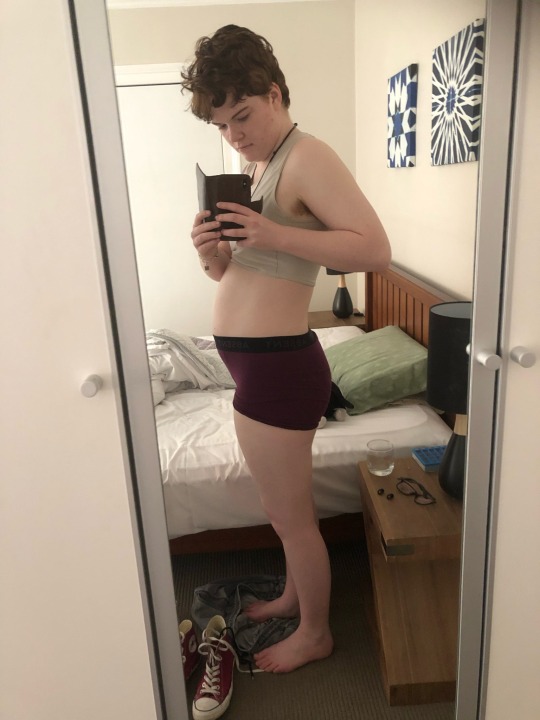
Day 23:
My doctor scanned me for the fourth time. The eggs were responding well to the medication, but only two were big enough to retrieve. She thought I should wait another week and come down again, and hopefully they should be able to retrieve at least five eggs. She clearly thought we should start the whole thing over again because ‘I can do better than that’, but I was adamant that if this failed, I wasn’t trying again.
Day 27:
I began to question again whether any of this was worth it. I just wanted to end the process and move on with my life. I didn’t realise how close I was to the finish line. Every moment felt like hell. I was bloated and emotional and sore and I just wanted it to end.
Day 29:
We drove to the city again. This time we didn’t do anything fun. My girlfriend had to pull over halfway there and get picked up by my mum. She was exhausted and hadn’t been sleeping well from the whole process.
Day 30:
I was scanned by the doctor again. This time, it was immediately clear that my ovaries looked different. She counted ten on one side and didn’t bother to count the other side. I was ready for surgery the next day.
Day 31:
I went to the day hospital at 7:45am. My girlfriend wasn’t allowed in the waiting room with me due to Covid, so I was alone. As I was filling out my sheet, I noticed my gender had been marked as female. I asked if they needed my biological sex or my gender. As it turns out, it didn’t matter at all. I wondered why they bothered to ask if it was irrelevant.
In the nurse’s notes, a handwritten sentence was bolted with pink highlighter: ‘REFER TO AS MR [surname].’ I was glad they were trying, especially considering how gendered the surgery itself was.
I got changed into my cap and gown and a pair of grippy orange socks that I got to keep.
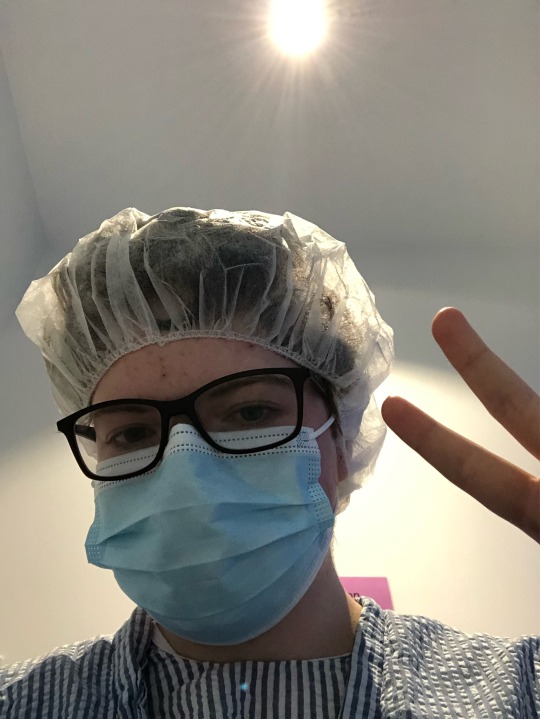
I then waited until the anaesthetist came to speak with me. He was slightly odd and a little abrasive, but I ignored this and made sure not to mention that my dad was an anaesthetist too. I felt like that would probably get us off on the wrong foot.
In the operating theatre, there was the same pop music playing as everywhere else in the hospital. The anaesthetist put a needle in he vein of my elbow, which I believe contained propofol. This wasn’t a general anaesthetic, just heavy sedation. They put an oxygen mask on my face. The last thing I remember was one of the doctors attaching a brace like prop for my legs to sit on. I don’t remember actually putting my legs on it.
It felt like no time had passed when I woke up. I assumed I was still in theatre until I was told otherwise. I vaguely remember having a weird sex dream. My dad tells me this is the propofol. My nose itched. The nurse laughed and blamed the fentanyl.
I was unusually chatty and bright, but my stomach hurt. They gave me some endone. This took the edge off.
They gave me a large triple choc cookie, some tea, and a glass of water. The first thing they told me was that hey managed to retrieve 28 eggs. I was ecstatic. I texted my girlfriend, mum and dad immediately.
Later, they told me that of those 28 eggs, 15 were mature enough to freeze and 3 more were almost mature enough and had been frozen too. I had essentially done two egg collections in one, and was at risk of OHSS. My girlfriend picked me up and drove us to the accomodation.
Day 31-33
Over these past few days I’ve been sore. It’s difficult to move without hurting my belly and lower abdomen. I’m still very bloated. The surgery itself had consisted of guiding a needle through the vaginal wall and retrieving the follicles from the ovaries, which were drained, and the eggs collected. The actual surgery site didn’t really hurt at all and there was minimal bleeding. The real pain is coming from where my swollen ovaries have been messed around, poked and prodded. They are also pressing on my bladder and uterus, so passing urine, gas and bowel movements can be painful. It also hurts to use my abdominal muscles for adjusting my position, laughing, hiccuping, yawning etc. I have to walk with slow, short steps.
Was it worth it?
Yes. Now that it’s over and i never have to do it again, I can safely say I am relieved to have preserved my fertility. Now I can move forward with my life: I’m seeing my hormone doctor on the 10th of may, who will prescribe me a low dose of testosterone gel. I can’t wait.
I would recommend preserving fertility if you can before medical transition. You never know what your future self might want, and self care is all about having compassion for your future self, even if it means sacrificing your comfort in the present.
Whatever you choose to do or whatever reason you are undergoing egg collection, know that you are doing something harrowing and brave.
After I have had my children (which will be a number of years in the future) I plan to donate the remainder of my eggs to those who need them on their own fertility journey. Knowing I’ve helped another couple or single parent build a family is compensation enough for what I’ve been through.
#ivf hospital#ivfjourney#IVF#ivf#trans#transgender#healthcare#reproductive health#fertility#hormones#medical transition#transition#gender affirmation
18 notes
·
View notes
Text
Transforming Dreams into Reality: The Test Tube Baby Journey in Nashik

Are you yearning to hear the pitter-patter of tiny feet echoing in your home? The journey to parenthood can be strewn with challenges, leaving couples feeling disheartened and isolated. However, amidst this struggle, hope gleams brighter than ever with advancements in reproductive technologies, particularly the Test Tube Baby Process, also known as In Vitro Fertilization (IVF). Let’s delve into how this revolutionary procedure is turning the dreams of countless couples in Nashik into tangible realities.
Meet Shreya and Rahul, a couple who epitomize the journey many embark upon in their quest for parenthood. Despite leading healthy lifestyles and consulting medical experts, traditional methods failed to bear fruit for them. Their longing for a complete family seemed like an elusive dream until they discovered the Test Tube Baby Process at AKPI’s clinic in Nashik.
Initially apprehensive, Shreya and Rahul found solace in the clinic's compassionate and professional approach. From comprehensive evaluations to detailed explanations of the IVF process, the team at AKPI provided unwavering support at every step. As they nervously awaited the pregnancy test after the embryo transfer, hope intertwined with anxiety, making each moment feel like an eternity.
Today, their precious daughter, Tara, fills their lives with boundless joy and love, a testament to the success of IVF. Their story mirrors that of numerous couples in Nashik who have realized their dream of parenthood through this groundbreaking procedure.
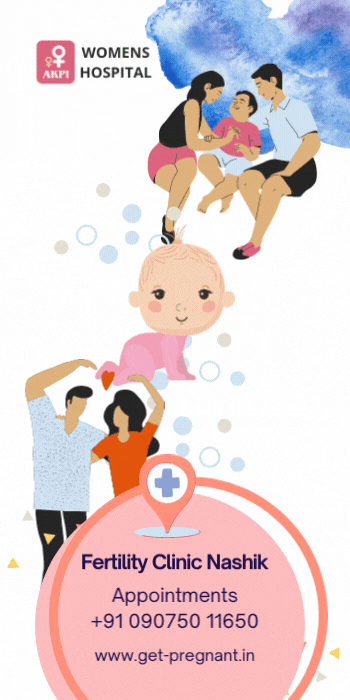
Before and After: The Test Tube Baby Journey
The journey towards parenthood through IVF entails meticulous pre-treatment evaluations to diagnose infertility causes and determine the suitability of IVF. Post-treatment, diligent monitoring ensures the success of implantation and a healthy pregnancy.
The Four Steps of the Test Tube Baby Process
For couples in Nashik, the Test Tube Baby Process offers a ray of hope in their fertility journey. Let's delve into the intricacies of this procedure:
Egg Production Stimulation: Hormone therapy stimulates the woman's ovaries to produce multiple follicles, preparing them for egg retrieval.
Retrieval of Eggs: Mature eggs are delicately retrieved from the ovaries using a fine needle under sedation or anesthesia.
Fertilization: The retrieved eggs are fertilized with sperm from the male partner, and the resulting embryos are monitored for viability.
Embryo Transfer: Healthy embryos are transferred into the woman's uterus using a catheter, offering the potential for pregnancy.
Addressing Concerns: Frequently Asked Questions
Are IVF injections painful? While minimal discomfort may be experienced during IVF hormonal injections, expert guidance can alleviate concerns and ensure a smoother journey towards parenthood.
Unlocking Success: Understanding IVF Success Rates
The success of IVF hinges on various factors, including age and underlying fertility issues. Couples can maximize their chances of success through lifestyle modifications and informed decision-making.
Navigating the Emotional Terrain of IVF
The emotional journey of IVF is as significant as its medical aspect. With evolving technologies and unwavering support, couples find renewed hope and happiness amidst the challenges of infertility.
In conclusion, the Test Tube Baby Process stands as a beacon of hope for couples in Nashik, transcending barriers and turning dreams into reality. With compassionate care and cutting-edge technology, parenthood becomes an achievable aspiration for all.

If you're ready to embark on your journey towards parenthood, reach out to us today. Together, we can transform your dreams into a beautiful reality.
Learn more
By sharing your experiences and insights, you can empower others on their fertility journey. Together, let's spread hope and awareness about the transformative power of the Test Tube Baby Process.
2 notes
·
View notes
Text
In vitro fertilization (#ivf ) is a #powerful option for #individuals and #couples facing #infertility , #offering a #chance to #conceive when other #methods fail. #ivf can bypass many #common #reproductive #issues , including #blocked #fallopiantubes , severe #male #infertility , and #ovulation disorders. It also allows for #genetics #screening, reducing the risk of genetic disorders in offspring. IVF is particularly beneficial for older women, same-sex couples, or those with unexplained infertility. Despite its high cost and emotional demands, IVF's higher #success rates compared to other treatments make it a compelling choice for many hoping to expand their #families . #aurawomen #aura #fertility #fertilityjourney #womeninfertility #womeninfertilitytreatment #endometriosis #ovulation #disorders #exercise #lifestyle
#aurawomen#aura#ivf#infertility#fertility#iui#pregnancy#maternity#ivfsuccess#iuisuccess#ivf treatment#ivf specialist#surrogacy#ivf hospital
3 notes
·
View notes
Text
learned about alabama banning ivf and i might actually throw up
#my sister and I were ivf babies#nothing says right to life like preventing people who actually want kids from having them#and forcing people who don't want kids to have them#ivf treatment#ivf hospital#fuck alabama#this is sick#anti fetus fingerbangers#pro choice#reproductive rights#reproductive health#reproductive justice#reproduction
2 notes
·
View notes
Text

Finding the right maternity hospital in Wakad is a crucial decision for expectant parents. With expert gynecologists, advanced facilities, and a compassionate approach, Orion IVF Clinic stands out as a trusted choice for maternity care. Whether you are planning for childbirth, prenatal care, or postnatal support, Orion IVF Clinic ensures a safe and comfortable experience.
Why Choose Orion IVF Clinic for Maternity Care?
Experienced Obstetricians & Gynecologists At Orion IVF Clinic, highly skilled and experienced obstetricians provide personalized care throughout pregnancy, ensuring the health of both mother and baby.
Advanced Labor & Delivery Facilities Equipped with state-of-the-art labor rooms and neonatal care units, Orion IVF Clinic ensures a safe and smooth delivery process.
Comprehensive Antenatal Care Regular check-ups, ultrasound scans, and dietary guidance are part of the holistic maternity services offered at Orion IVF Clinic.
High-Risk Pregnancy Management For expectant mothers facing complications like gestational diabetes or hypertension, specialized care and monitoring are provided.
Postnatal & Lactation Support After delivery, expert lactation consultants and postnatal care specialists guide new mothers for a smooth recovery and baby care.
Services Offered at Orion IVF Clinic
Normal & C-Section Deliveries
Prenatal & Postnatal Care
Fertility Consultation & Treatment
Ultrasound & Diagnostic Services
Newborn Care & Pediatric Support
Book an Appointment Today!
If you are searching for a maternity hospital in Wakad that prioritizes your health and comfort, Orion IVF Clinic is the right choice. With a patient-centric approach, advanced medical care, and a supportive team, your journey to motherhood becomes safe and memorable.
For consultations and appointments, visit Orion IVF Clinic in Wakad today!
2 notes
·
View notes
Text
Best IVF Center in Delhi

At Benison IVF, our goal is to provide advanced Assisted Reproductive Technology (ART) in India on par with what is available globally. But you must be thinking, what makes us unique or what makes our IVF success rates higher? Well, this is one of the most common questions that we actually hear from our patients. Benison IVF believes that there are various things related to our success rate of IVF procedures and why we are India's trusted fertility clinic, some of which are:
Supportive Clinical and laboratory team: We think the entire clinical and laboratory team plays a role in the IVF procedure's success rate. Why? Since repeated IVF cycles are challenging, and couples incur psychological distress. According to a study, waiting to get pregnant during the IVF procedure is associated with more anxiety. So, at Benison IVF, a full-time Reproductive Health Psychologist and a clinical specialist are both available 24/7 as part of our team's effort to address this problem by providing information and emotional support.
3 notes
·
View notes
Text

Health benefits
2 notes
·
View notes
Text
Poupak Ziaei is a Skilled Hospitalist at Henderson Hospital, and a Platinum Group member finds joy in traveling and exploring new cultures.
2 notes
·
View notes
Text
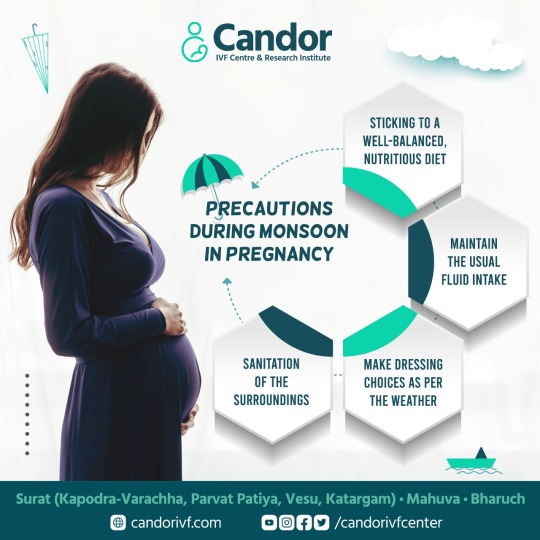
Optimal hygiene is one of the most important pregnancy tips to follow.
Keeping a few monsoon pregnancy care tips in mind can make sure you stay safe at all times, and enjoy the weather and the beautiful rains with your little one inside you!
Sticking to a well-balanced, Nutritious diet
Maintain the usual Fluid intake
Make dressing choices as per the Weather
Sanitization of surroundings
Get consult with best Gynecologist at Candor IVF Center for Pregnancy
#health#pregnancy#infertility#ivf hospital#ivf treatment#fertility#fertility center#health & fitness#ivf#fertility doctor#best ivf centre in india#healthy pregnancy#natural pregnancy#pregnant#monsoon#rain
2 notes
·
View notes